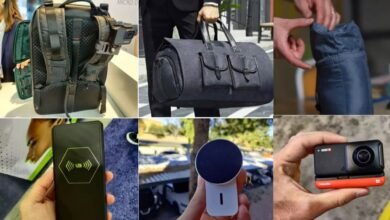Exploring the Future of Virtual Reality Gadgets

Virtual Reality (VR) has rapidly gained popularity and is transforming various industries by providing immersive experiences to users. The advancements in VR technology have paved the way In this article, we will explore the future of virtual reality gadgets, discussing the potential developments, impact, challenges, and considerations in this exciting field. for futuristic gadgets that push the boundaries of what is possible. In this article, we will explore the future of virtual reality gadgets, discussing the potential developments, impact, challenges, and considerations in this exciting field.
Virtual Reality, commonly referred to as VR, is a technology that simulates a realistic and immersive experience for users, often involving the use of specialized headsets or goggles. The concept of VR has been around for decades, but recent advancements in hardware, software, and content creation have propelled it into the mainstream.
VR gadgets have gained significant attention in recent years, thanks to their ability to transport users to virtual worlds and provide unique experiences. The demand for VR gadgets has surged as more industries recognize the potential of this technology for entertainment, education, healthcare, and various other applications.
Read more: The Latest Gadgets for Outdoor Adventures in 2023
Current state of Virtual Reality Gadgets

Currently, there is a wide range of VR gadgets available in the market catering to different needs and preferences. These gadgets vary in terms of features, price, and compatibility with different platforms. Some popular VR gadgets include the Oculus Quest, HTC Vive, PlayStation VR, and Samsung Gear VR.
Advancements in VR technology have led to improved displays with higher resolutions, wider field-of-view, and better refresh rates. These improvements contribute to a more immersive and realistic experience for users. Additionally, the integration of motion-tracking sensors and controllers allows for more precise and intuitive interactions within virtual environments.
The VR market has experienced rapid growth, driven by the increasing demand for immersive entertainment experiences. The gaming industry, in particular, has embraced VR technology, offering an array of games and experiences tailored for VR platforms. However, VR gadgets are not limited to gaming and are being utilized in various fields, including education, training, healthcare, and architecture.
Future developments in Virtual Reality Gadgets
The future of virtual reality gadgets holds great promise, with several exciting developments on the horizon. These advancements aim to enhance the user experience, make VR more accessible, and expand its applications across industries.
Improved hardware specifications
Future VR gadgets are expected to feature even more impressive hardware specifications. This includes higher-resolution displays with pixel densities that eliminate the screen door effect, wider field-of-view for increased immersion, and improved ergonomics for enhanced comfort during extended use.
Wireless and standalone VR devices
One of the significant barriers to widespread VR adoption is the reliance on cables and the need for a powerful PC or console. However, future VR gadgets are likely to be wireless and standalone, eliminating the need for external devices. This would make VR more convenient and accessible, allowing users to experience virtual worlds without restrictions.
Augmented Reality (AR) integration
The integration of Augmented Reality (AR) with VR technology holds tremendous potential. By combining elements of the real world with virtual environments, AR-enhanced VR gadgets could offer a unique mixed reality experience. Users would be able to interact with virtual objects overlaid on the real world, opening up new possibilities for gaming, education, and professional applications.
Haptic feedback and sensory immersion
The sense of touch is crucial for creating truly immersive experiences. Future VR gadgets are expected to incorporate advanced haptic feedback systems, enabling users to feel the texture, weight, and physical interactions within virtual environments. This sensory immersion will enhance the realism and engagement of VR experiences.
Brain-computer interfaces and neural VR
The field of brain-computer interfaces (BCIs) holds immense potential for the future of VR gadgets. BCIs allow direct communication between the brain and a computer system, enabling users to control virtual environments using their thoughts. Neural VR could revolutionize the way we interact with virtual worlds, making it possible to navigate, manipulate objects, and communicate purely through neural signals.
Impact of Virtual Reality Gadgets
The impact of virtual reality gadgets extends beyond entertainment and gaming. Various industries are harnessing the power of VR to revolutionize their processes and provide unique experiences.
Entertainment and gaming industry
The gaming industry has been at the forefront of VR adoption, utilizing the immersive nature of VR to create captivating and realistic gaming experiences. VR gadgets offer gamers the ability to step into virtual worlds, interact with characters and environments in unprecedented ways, and fully immerse themselves in the gaming experience.
Education and training applications
Virtual Reality has tremendous potential in the field of education. VR gadgets can transport students to historical events, natural environments, and even outer space, providing engaging and interactive learning experiences. Additionally, VR simulations can be used for training purposes in fields such as medicine, aviation, and military, allowing individuals to practice complex tasks in a safe and controlled virtual environment.
Healthcare and therapy advancements
Virtual Reality has shown great promise in healthcare and therapy. VR gadgets can be used to treat phobias, post-traumatic stress disorder (PTSD), and other mental health conditions through exposure therapy. Additionally, VR simulations can assist in surgical training, pain management, and rehabilitation exercises, improving patient outcomes and reducing healthcare costs.
Virtual tourism and travel experiences
Virtual Reality can offer virtual tourism experiences, allowing individuals to explore landmarks, cities, and natural wonders from the comfort of their homes. VR gadgets can transport users to destinations they may not be able to visit physically, offering a unique and immersive way to discover the world.
Collaboration and communication tools
VR gadgets have the potential to revolutionize remote collaboration and communication. Virtual meeting spaces can bring people together from different locations, allowing them to interact and collaborate as if they were in the same room. This can enhance productivity, facilitate brainstorming sessions, and create a more engaging and immersive remote working environment.
Challenges and considerations in Virtual Reality Gadgets
While the future of virtual reality gadgets is promising, there are several challenges and considerations that need to be addressed for wider adoption and successful implementation.
Cost and accessibility
Currently, VR gadgets can be quite expensive, making them less accessible to a wider audience. As the technology progresses, efforts should be made to reduce the cost of VR devices without compromising on quality. This would make VR more affordable and increase its reach to a broader range of users.
Motion sickness and user discomfort
Motion sickness is a common issue experienced by some users when using VR gadgets. The disconnect between the user’s visual perception and physical movement can lead to discomfort and nausea. Future developments should aim to minimize motion sickness through improved tracking, reduced latency, and optimized user interfaces.
Ethical and social implications
As VR becomes more immersive and realistic, ethical and social implications need to be considered. Virtual environments can blur the line between reality and fiction, raising questions about user safety, identity, and the potential for addiction or psychological effects. It is crucial to establish guidelines and regulations to ensure responsible use of VR technology.
Privacy and data security concerns

VR gadgets collect and process sensitive user data, including movements, interactions, and personal preferences. Privacy and data security concerns need to be addressed to protect user information and ensure trust in VR technologies. Clear data handling policies and robust security measures should be implemented to safeguard user privacy.
Read more: Tech Gadgets Unveiled: Reviews and Recommendations
Conclusion
The future of virtual reality gadgets is filled with exciting possibilities. From improved hardware specifications to wireless and standalone devices, augmented reality integration, haptic feedback, and brain-computer interfaces, VR technology is on a path of continuous innovation. The impact of VR gadgets spans across entertainment, education, healthcare, and other industries, revolutionizing how we experience and interact with digital content. However, challenges such as cost, motion sickness, ethical implications, and privacy concerns must be carefully navigated to realize the full potential of VR technology.
FAQs
Can virtual reality gadgets be used for educational purposes?
Absolutely! Virtual reality gadgets offer immersive and interactive learning experiences, making them valuable tools in education.
Are VR gadgets only for gaming?
While gaming is a popular application of VR gadgets, they have diverse uses in fields such as education, healthcare, architecture, and more.
Are virtual reality gadgets accessible for everyone?
Currently, the cost of VR gadgets can be a barrier for some users. However, efforts are being made to make VR more affordable and accessible.
Do VR gadgets cause motion sickness?
Some users may experience motion sickness when using VR gadgets due to the discrepancy between visual perception and physical movement. However, advancements in technology aim to reduce this issue.
What are the privacy concerns with VR gadgets?
VR gadgets collect user data, raising privacy concerns. It is important for companies to have transparent data handling policies and robust security measures in place to protect user information.











